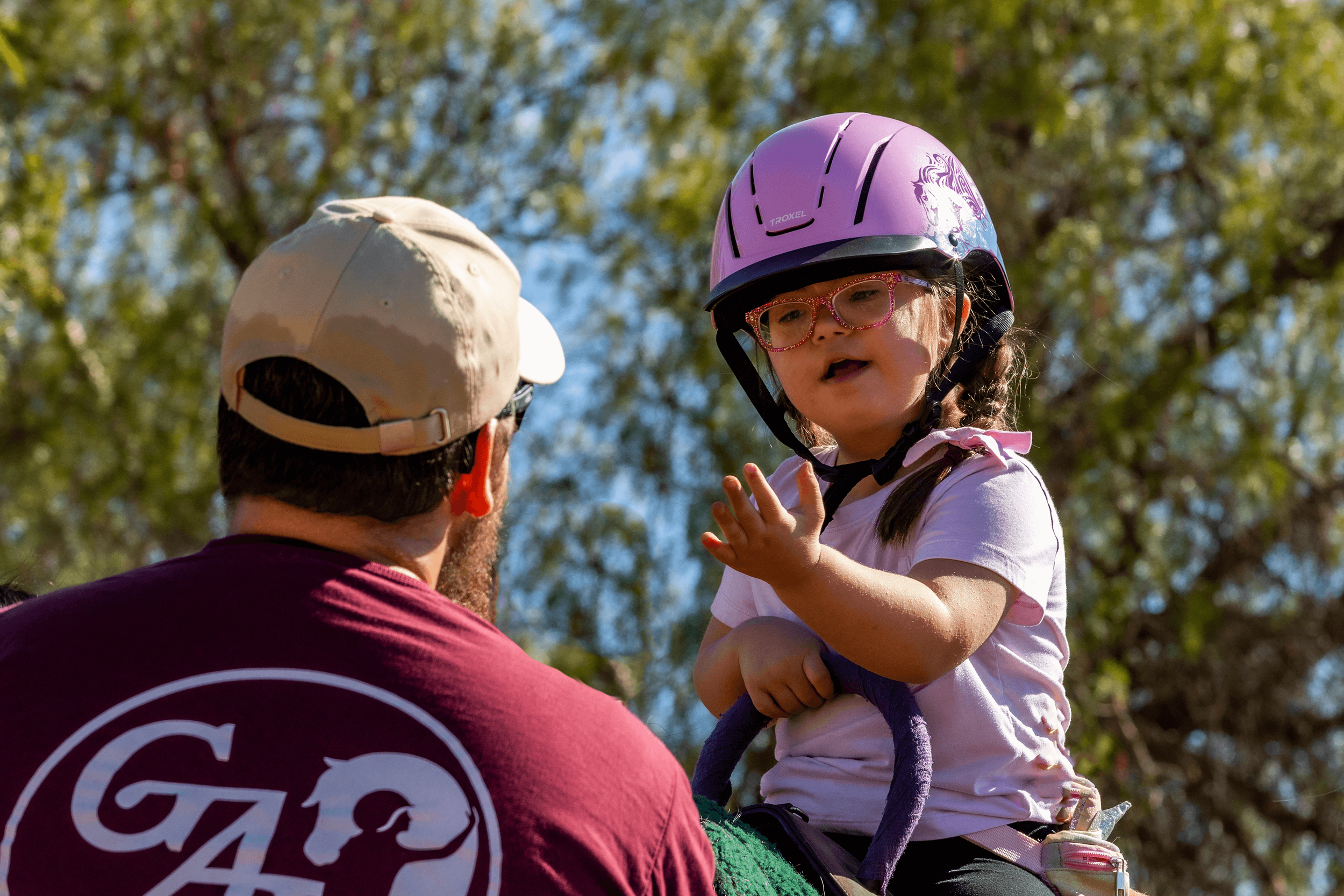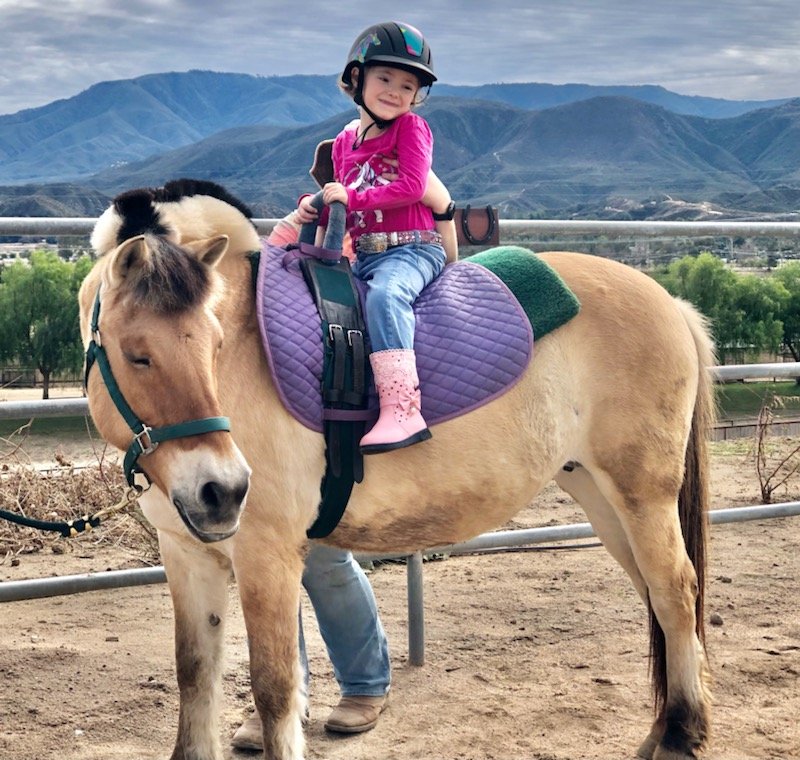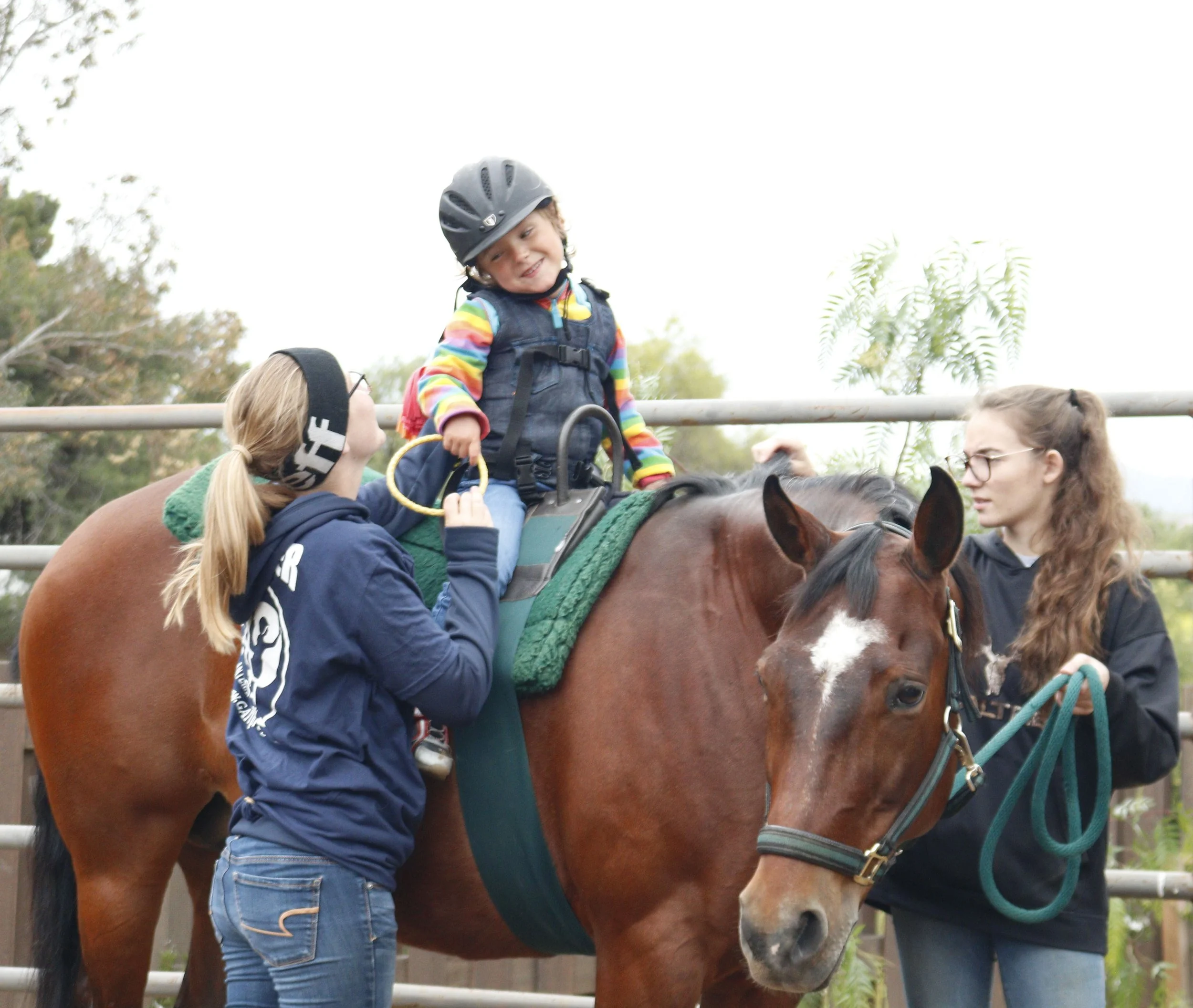About GAIT's ADAPTIVE RIDING Lessons
GAIT offers its adaptive riding lessons in structured five-week packages or sessions. This approach ensures that each rider's objectives are kept in sharp focus and that they benefit from a regular, steady schedule. At GAIT, we take great pride in our commitment to helping clients achieve their long-term goals. A consistent schedule not only maximizes the benefits for students but also allows parents and instructors to closely monitor progress and growth.
GAIT'S VITAL ROLE IN THE COMMUNITY
Diverse Needs, United Solutions
Special needs occur among all ethnic, racial, and socioeconomic groups. Recent estimates in the United States show that about one in six, or about 15%, of children aged 3 through 17 years have one or more developmental disabilities, such as: ADHD, autism spectrum disorders, cerebral palsy, hearing loss, intellectual disability, learning disability, vision impairment, spinal or head injury and other developmental delays.
GAIT plays a crucial role by harnessing the connection between horses, small farm animals, and students to effectively address the unique learning, developmental, emotional, and physical challenges associated with disabilities.
“THE OUTSIDE OF A HORSE IS GOOD FOR THE INSIDE OF A MAN.”
- Winston Churchill
Representation of Some of The Diagnosis That We Serve Here At GAIT
Emotional Disorders
Multiple Sclerosis
Muscular Dystrophy
Post-Traumatic Stress Disorder
Stroke
Attention Deficit Disorder (ADD)
Autism
Brain Injuries
Cerebral Palsy
Down Syndrome
BENEFITS OF ADAPTIVE HORSEMANSHIP
-
Strength
Flexibility
Stamina
Stretching
Improved Balance
Improved Coordination
-
Interacting With Others Appropriately
Sharing Leadership Skills
Decision Making
Managing Social Anxiety
-
Positive Interactions
Improved Self Esteem
Improved Confidence
Building Trust
-
Riding Independently
Showing
Steering
Responsibility
Specific Riding Discipline
-
Reading
Spelling
Counting
Colors
Processing
Identifying Objects
According to PATH International:
Therapeutic riding is an equine-assisted activity for the purpose of contributing positively to the cognitive, physical, emotional and social well-being of individuals with special needs.
The body
The movement of the horse is multi-dimensional and provides simulation of what a normal walking pattern should feel like. It is rhythmic, consistent, and predictable, like human walking. The repetitive movement allows the rider many opportunities to practice and refine balance responses, leading to improvements in core stabilization and postural control.
The HEart
In working with horses, the benefits reach beyond the physical. In a study published in the Journal of Traumatic Stress in 2015, researchers found that equine-assisted therapy reduced riders’ anxiety and helped them recover more quickly from a traumatic event. Results from similar studies show a reduction in emotional outbursts, increased vocabulary, and improvements in self-esteem.










